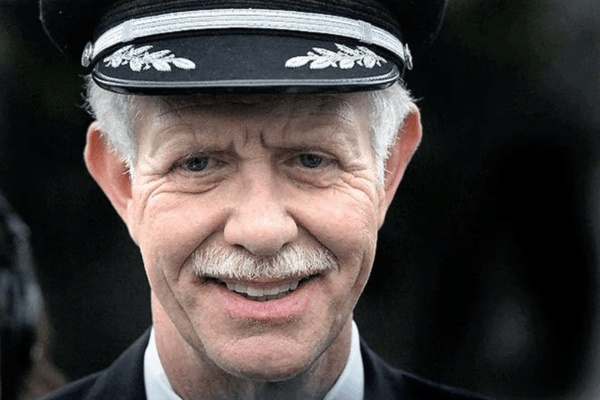Drenka cofounded the Dallas Asian American Historical Society this spring, which documents and celebrates the history and legacies of the city’s AAPI population.
Stephanie Drenka Fashion Blogger
Stephanie Drenka experienced a sense of powerlessness over her early life. Drenka was born in South Korea but was adopted by a white family in Chicago when she was just 3 months old. She cofounded the Dallas Asian American Historical Society earlier this year. Moreover, She dived heavily into learning Korean history, seeking to see where she fit into that tale, after taking an Asian American Studies course in college at DePaul University and getting involved in student organisations.
She eventually began an official birth family search as well. She visited a leadership conference in South Korea during that trip, made an appearance on a Korean television programme, and sent telegrams to a nearby adoption agency. Drenka claims it took several years for her to find out that she had two older sisters and that her birth father had died years earlier.
Regulations
By breaching the regulations and contacting my sisters, the agency was able to eventually contact them, claims Drenka. I was able to meet up with them once again, learn more about their family history, and get a clearer sense of where I fit into their origin story.
Over time, Drenka had conversations with close friends like Denise Johnson, who came to the United States from the Philippines at the age of 17, about her experiences as a transracial adoptee. She noticed that many Asian Americans shared this sense of helplessness regarding their personal histories. She also wished to take action in response.
Company
The Dallas Asian American Historical Society was established in March by Drenka and Johnson. The nonprofit company studies, protects, and celebrates the contributions made by Asian Americans to the Dallas area. Through essays and documentaries, it tells the little-known histories of regional Asian Americans and historical sites. The group will assist people in archiving and preserving their family’s history when they submit personal accounts and artefacts. Therefore, Drenka believes that the most effective strategy for combating dehumanising stereotypes, negative emotion, and anti-Asian hate crimes is to offer the Dallas community a historical society that would preserve and promote Asian American experiences.
Drenka and Johnson
Drenka and Johnson realised they needed to take action after noticing rising racial tensions, bigotry, and violence towards Asian Americans as a result of the pandemic. The 2021 Atlanta Spa Shootings had a very personal impact on Drenka.
When Drenka was younger, she actually lived close to a spa in Marietta. “Just knowing that it was women of Asian origin and that they were murdered by someone who had objectified and hypersexualized Asian women really struck a cord for me,” she recalls.
Drenka was Dallas Truth, Racial Healing & Transformation’s director of communications at the time. She organised a nationwide town hall and gave a presentation on little-discussed historical events, such as how the Seagoville prison served as a Japanese internment camp or how Chinese exclusion rules made it difficult for families to move to the United States. Drenka had a desire for educating Dallas residents about historical myths, but she was waiting for another organisation to fill the gap and share the history of Asian Americans.
Inspiration
In an effort to take inspiration from another city, she claims she began researching past Asian American communities. “I discover that the nation lacks an Asian American historical society. There is no organisation that unifies all Asian Americans, but there are Chinese American historical groups and Japanese American history societies. Johnson was then approached by Drenka to discuss how they may collaborate to combat continued racism. They obtained 501(c)(3) permission for the Dallas Asian American Historical Society, hired a graphic designer, and began posting stories to their social media and website.
Organisation
The organisation and Jonathan Angulo of Voices of SMU worked together in April to instruct participants on how to record their own family histories orally.
We didn’t want to pass up the chance to spread the word about the importance of archiving and preserving family history, according to Drenka. Since May is [Asian American and Pacific Islander Heritage] Month, we want to make the most of the increased public awareness of the Asian American experience.
The group is also engaged in longer-term endeavors like the documentary HEAR ME ROAR: A Collection of AAPI Stories. This continuous series dispels false assumptions like the model minority myth and highlights the parallels and disparities in the Asian American experience. The upcoming web series thank You, Have A Nice Day will feature regional, tiny eateries while also enlightening the public on the background of their preferred cuisines.
Historical Society’s
The Dallas Asian American Historical Society’s upcoming event, “History in the Making,” will take place on June 12 from noon to 4 p.m. Community members are invited to share their oral histories for the HEAR ME ROAR film at the free digitization and storytelling event. They can also bring records and images to be carefully conserved; these artefacts will be incorporated into Dallas’ expanding collection of Asian American public history.
Sum up
Drenka hopes that the video series and other activities like “History in the Making” will help the local Asian American community learn more about their own pasts. The society’s different programmes will continue “as long as we have stories to tell,” adds Drenka, who is unsure of how many interviews they will secure.





